In our quest for good health, many of us focus on what we should be eating. However, it’s equally important to know what to avoid. Certain foods have been found to harm our gut microbiome, the community of microorganisms living in our intestines that play a crucial role in our overall health. The following list highlights twelve common foods that could be detrimental to your gut health. By being mindful of these items, you can make more informed dietary choices and support your body’s natural balance.
1. Artificial Sweeteners

Artificial sweeteners often promise a way to enjoy sweetness without the calories, but they may come at a cost to your gut health. Their impact on the gut microbiome can lead to glucose intolerance, making it harder for the body to regulate sugar levels. A study found that these sweeteners could disrupt the balance of good and bad bacteria, leading to potential metabolic issues. These seemingly innocent sugar substitutes may not be the solution they appear to be. As appealing as they may seem, it’s wise to consume them with caution.
2. Fried Foods

Fried foods, with their crispy exterior and tantalizing aroma, are hard to resist but can wreak havoc on your gut health. These foods are often cooked in unhealthy oils that can lead to inflammation in the gut. The high-fat content can alter the composition of gut bacteria, decreasing diversity and promoting harmful strains. Regular consumption can contribute to the deterioration of the gut lining, a vital barrier against harmful substances. While they may satisfy a craving, fried foods are best enjoyed sparingly to protect your gut.
3. Processed Meats

Processed meats, such as bacon, sausages, and deli meats, are known for their convenience and taste but present a risk to your gut microbiome. These meats are high in preservatives and additives that can disrupt the delicate balance of gut flora. Consuming them can lead to inflammation and an increased risk of colorectal cancer. These foods often contain nitrates and nitrites, which have been linked to harmful microbial changes. While they might enhance a sandwich, their potential harm to your gut makes them a questionable choice.
4. Refined Sugars
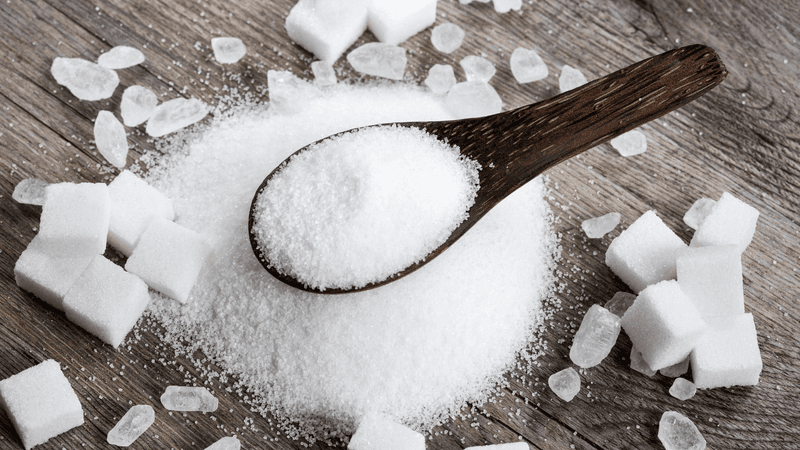
Refined sugars, though sweet and satisfying, can be detrimental to your gut’s ecosystem. Their consumption feeds harmful bacteria and yeast, disrupting the balance of your microbiome. This imbalance can lead to digestive issues, like bloating and gas, and more severe metabolic problems. Excessive sugar intake is also linked to inflammation, which can affect the lining of the gut. While sugar is a staple in many diets, moderation is key to maintaining a healthy gut. Limiting sugar can promote a more balanced microbial environment.
5. Alcohol
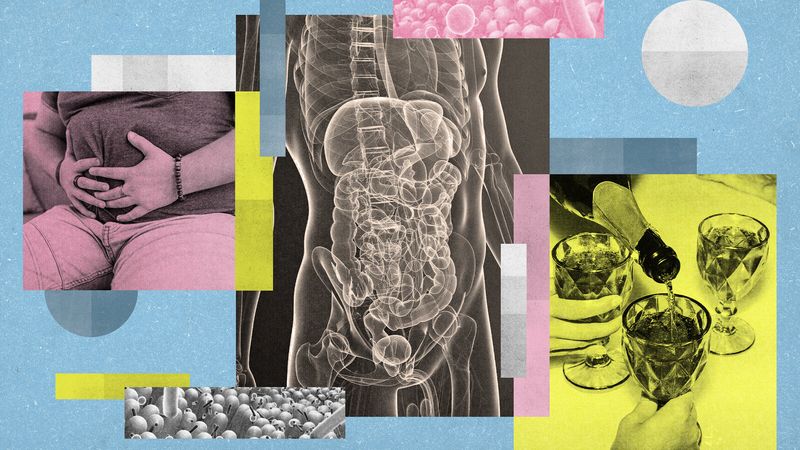
Alcohol, a common staple in social gatherings, can negatively impact your gut health in significant ways. Its consumption can lead to an imbalance in gut bacteria, promoting the growth of harmful strains. Alcohol is also known to increase gut permeability, sometimes referred to as ‘leaky gut,’ which allows toxins to pass into the bloodstream. While moderate consumption may be acceptable for some, excessive drinking poses a clear risk to the gut microbiome. Balancing enjoyment with health awareness can help protect your gut.
6. Dairy Products

Dairy products, while rich in calcium and nutrients, can be problematic for those sensitive to lactose. Lactose intolerance can lead to bloating, gas, and discomfort due to the inability to properly digest lactose. The undigested lactose can alter the gut microbiome, promoting the growth of undesirable bacteria. For some, dairy can also trigger inflammation and disrupt gut harmony. Despite their benefits, dairy products must be consumed judiciously, especially for those with lactose sensitivity, to maintain gut health.
7. Gluten-containing Grains
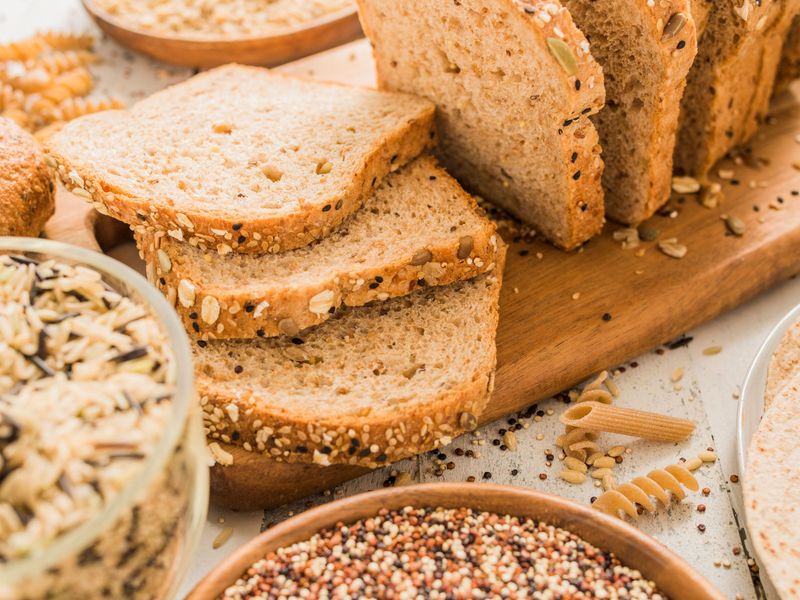
Gluten, found in grains like wheat, barley, and rye, can be a hidden irritant to the gut for many people. For those with celiac disease or gluten sensitivity, consuming gluten can lead to severe gut inflammation and damage to the intestinal lining. Even in non-sensitive individuals, excessive consumption might contribute to digestive discomfort and reduced microbiome diversity. Understanding your body’s response to gluten can guide dietary choices. It’s not about eliminating gluten entirely but finding a balance that suits your gut’s needs.
8. Caffeinated Beverages

Caffeinated beverages like coffee and energy drinks offer a burst of energy but can irritate the gut lining if consumed in excess. High caffeine intake may lead to increased stomach acid production, which can upset the gut’s natural balance. For some, caffeine acts as a diuretic, leading to dehydration that can affect gut function. While these drinks are a staple for many, moderation is crucial to ensure they don’t disrupt your gut’s equilibrium. Balancing enjoyment with mindful consumption can help preserve gut health.
9. Spicy Foods
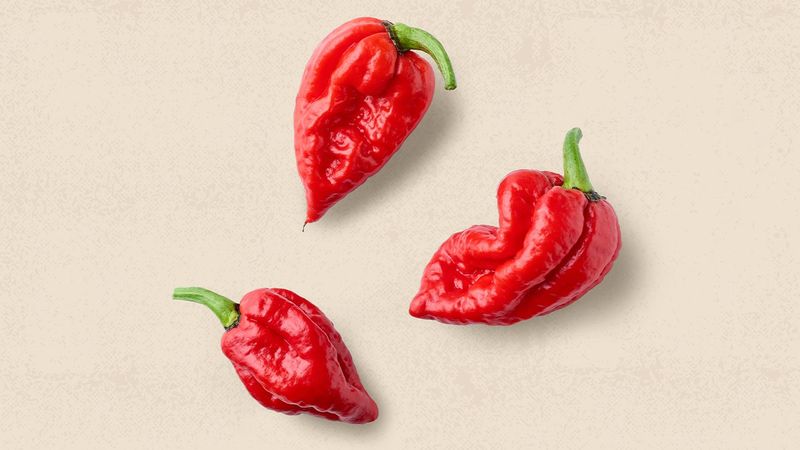
Spicy foods, with their bold flavors, can be a delight for the taste buds but may upset the gut for some. Capsaicin, the compound that gives chili peppers their heat, can irritate the stomach lining and exacerbate conditions like acid reflux. For sensitive individuals, spicy foods can lead to discomfort and digestive disturbances. However, not all reactions are negative; some enjoy them without issue. Moderation and listening to your body’s signals are key to enjoying spicy foods without compromising gut health.
10. Soy Products
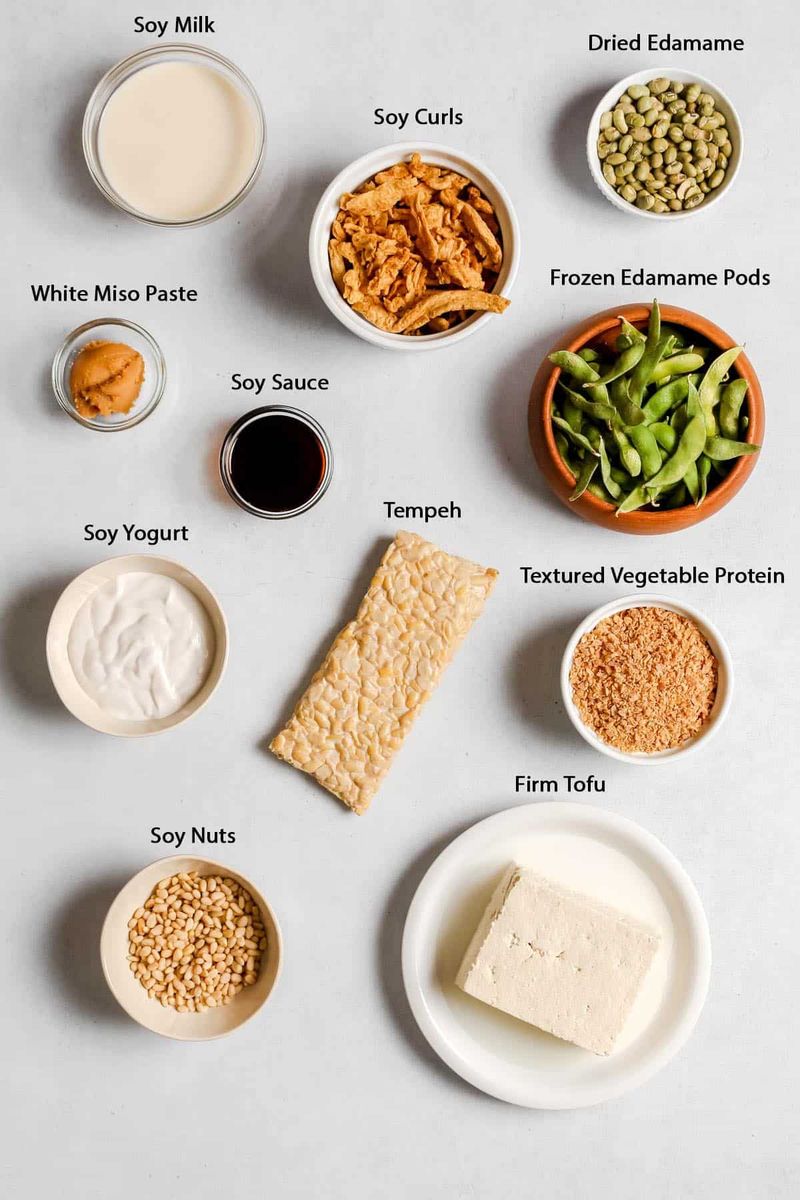
Soy products, including tofu and soy milk, are popular plant-based options but may not suit everyone’s gut. For some, soy can be difficult to digest, leading to bloating and discomfort. The phytoestrogens in soy can also affect gut bacteria composition, although research is ongoing. While these products are a healthy choice for many, those with sensitivities should monitor their reactions. Understanding individual tolerance levels can guide soy consumption, ensuring it supports rather than disrupts gut balance.
11. Carbonated Drinks

Carbonated drinks, from soda to sparkling water, offer a refreshing fizz but can lead to bloating and gas. The carbonation process introduces air into the digestive system, which can cause discomfort and disrupt gut harmony. Sugary sodas also contribute to an imbalance in gut bacteria, promoting harmful strains. While the occasional carbonated drink may be harmless, regular consumption can pose challenges for the gut. Choosing alternatives or reducing intake can help maintain a balanced and comfortable digestive system.
12. Fast Food
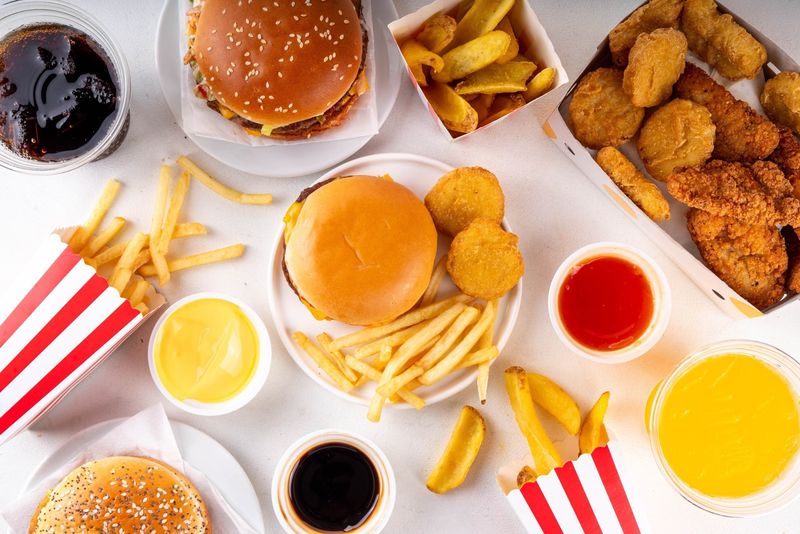
Fast food, with its convenience and flavor, can be a tempting choice but often lacks nutritional value. High in unhealthy fats, sugars, and additives, these meals can disrupt the gut microbiome by promoting inflammation and reducing bacterial diversity. The frequent consumption of fast food is linked to an increased risk of obesity and metabolic issues, both of which can harm gut health. While fast food can be an occasional indulgence, prioritizing nutrient-rich options supports a healthier gut environment.
Hi all, I am Sidney, an accountant, a hobbyist photographer, and a mother to two sweet girls who are my motivation. I love sharing the tips and tricks I gained all these years I’ve been a mother. I hope it will help you!

